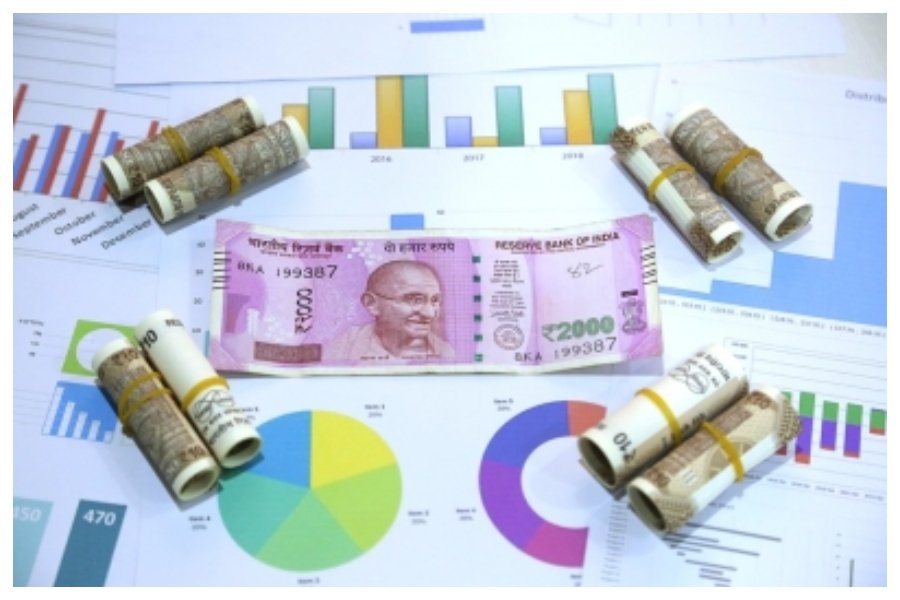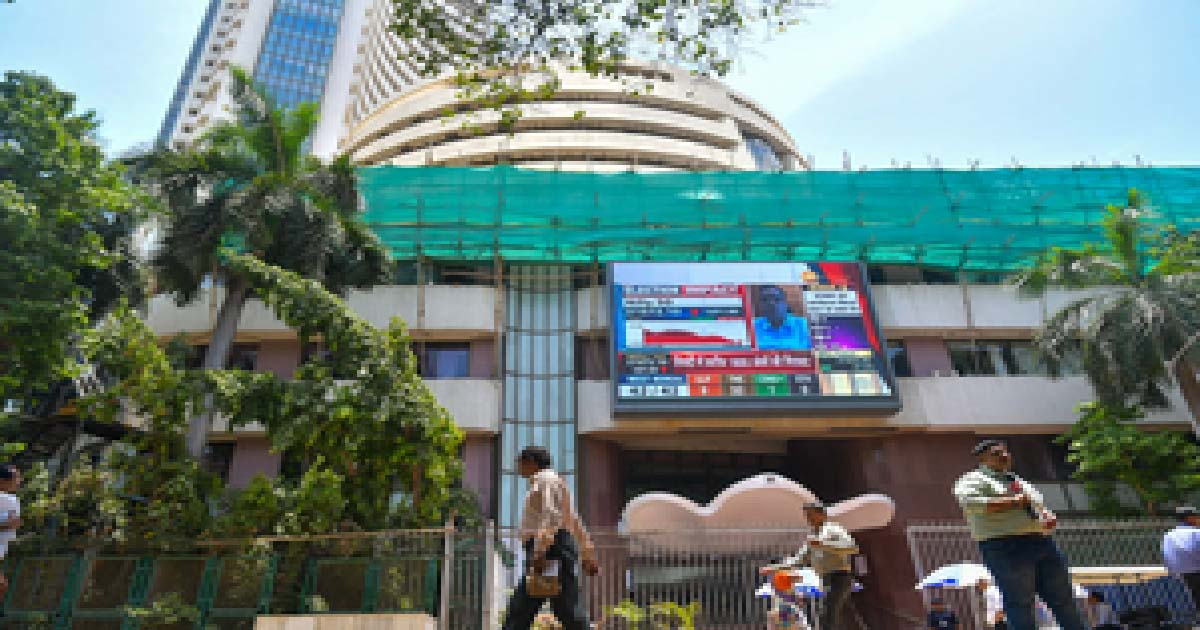Business
Bank brokerages to continue reporting strong performance: Report

The domestic capital markets continue to remain on an upward trajectory after a strong performance in FY2021.
The average daily turnover (ADTO) increased to Rs 27.92 lakh crore in FY2021 from Rs 14.39 lakh crore in FY2020, registering an annual growth of 94 per cent. Transaction volumes remain strong in the current fiscal, with the markets clocking an ADTO of Rs 56.36 lakh crore in H1 FY2022.
As per ICRA, the market performance has been supported by favourable liquidity in both domestic and international markets, optimism related to a recovery after the graded reopening of the economy, progress on vaccination rollout and steady retail investor momentum.
Throwing more light, Samriddhi Chowdhary, Vice President & Sector Head – Financial Sector Ratings, ICRA says, “The pool of ICRA-rated bank brokerages reported a strong performance in FY2021 with the estimated average daily turnover (ADTO) increasing 28 per cent Y-o-Y to Rs 1.51 lakh crore from Rs 1.18 lakh crore in FY2020, led by the healthy growth in the retail segment.
Despite the changes in the margin requirements, the performance remained healthy in Q1 FY2022 with an estimated ADTO of Rs 1.64 lakh crore, driven by favourable retail investor sentiment. However, the market share of the sample pool of ICRA-rated bank brokerages in terms of transaction volumes declined in FY2021 and moderated further in Q1 FY2022 as they continue to lose share to discount brokers.”
Bank-brokerages reported a strong uptick in earnings in FY2021 registering a year-on-year (Y-o-Y) growth of 40 per cent in total revenues and 80 per cent in profit after tax. The cost structure and operational efficiency of the bank brokerage companies also improved over the past few years with focus on the rationalisation of branches coupled with cautious efforts towards the transition to a digital business model, thereby improving the operational efficiency across brokerages.
Bank-brokerages have been increasingly looking at other non-broking sources of income, namely capital market lending business, distribution income and investment banking revenue. Bank-brokerages have significantly scaled up the margin funding business over the past fiscal, moving in line with the capital market rally, which has resulted in an increase in their borrowing level.
The retail broking segment has witnessed a significant disruption in the last few years due to the growing prominence of discount brokerages. The competitively priced offerings of discount brokers and the no-frill basic accounts and services have resulted in the realignment of the pricing strategy across the industry.
Adds Chowdhary, “apart from attracting clients from full-service providers, discount brokerage houses have helped expand the market by bringing on board a large number of first-time investors. While the market share for bank brokerages in terms of active clients moderated in FY2021, primarily owing to the faster scaling up of the discount brokerage houses, they reported a strong performance as reflected by the healthy operating metrics and surge in earnings.”
ICRA expects bank brokerages to continue to build their retail franchise and focus more on technology and digital models for customer acquisition. Supported by these factors, bank brokerages are expected to register a healthy growth in client addition as well as transaction volumes, though their share in total active clients would moderate owing to the rapid expansion of the discount broking model. The blended yields are expected to compress going forward, though the focus on fee and fund-based income would support the profitability.
Adds Chowdhary, “Bank brokerages are expected to continue to enjoy better brand recall, trust, higher credibility and financial flexibility by virtue of being a part of banking groups and would, therefore, remain a prominent part of the industry value chain. Bank brokerages are also increasingly looking at the emerging demographic opportunities and new geographical base, which is facilitated through online channels. Going forward, the ability of the bank brokers to effectively ramp up their digital initiatives, attract millennial clients and expand to a newer geographical base such as Tier II and Tier III cities would be critical.”
ICRA expects the net operating income (NOI) of bank brokerages to grow 20-25 per cent year-on-year (Y-o-Y) in FY2022 supported by steady broking income along with an uptick in the margin funding and distribution businesses; the ramp-up of other capital markets related businesses could further support the earnings profile. The net profit for bank brokerages is expected to grow 17-20 per cent during the same period.
The borrowings levels of bank brokerages are expected to increase in the current fiscal to support their margin funding business. The gearing levels of bank brokerages are expected to be in the range of 1.5-2 times in FY2022 at an industry level while the gearing across entities would vary between 1 to 3 times based on the scale of margin funding operations.
Business
Ashwini Vaishnaw flags off Swarnanagari Express, connecting Jaisalmer to Delhi

Jaipur, Nov 29: Railway Minister Ashwini Vaishnaw and Union Tourism Minister Gajendra Singh Shekhawat jointly flagged off the Swarnanagari Express on Saturday, which will connect Jaisalmer with Delhi.
During the inauguration ceremony, responding to the request of Union Minister Shekhawat and the locals, the Railways Minister announced the renaming of the newly-launched train from Jaisalmer–Shakur Basti–Jaisalmer to Swarnanagari Express.
He announced that the train will begin regular operations on December 1.
The minister said that development work at Jaisalmer railway station is in its final phase and is expected to be completed within a month.
“Efforts will be made to ensure that Prime Minister Narendra Modi inaugurates the upgraded station,” he said.
Union Minister Vaishnaw also confirmed that the railway line between Jaisalmer and Jodhpur will be upgraded soon.
According to officials, these initiatives will significantly improve connectivity, boost tourism, and strengthen strategic infrastructure in the border region.
Ashwini Vaishnaw said that the connectivity will strengthen national security.
Preparations are underway to connect several regions along the Rajasthan–Pakistan border with new railway lines.
He said that extending rail connectivity to these sensitive areas will significantly enhance the country’s security infrastructure.
Under this initiative, new railway lines are proposed for Anupgarh, Bikaner, Jaisalmer, Barmer, and Bhildi.
The minister arrived in Jaisalmer on Saturday to inaugurate a new train service to Delhi.
The minister also visited stalls under the One Station, One Product scheme and made purchases to promote local artisans.
He said that the Detailed Project Report (DPR) for the proposed border-area railway lines is being prepared and will be completed in the coming months.
“A complete effort will be made to connect the entire border region,” he assured.
He added that railway projects worth approximately Rs 55,000 crore are currently in progress across Rajasthan, including the redevelopment of 85 railway stations.
Work is also advancing on multiple new railway corridors and infrastructure projects.
The new initiatives, officials said, will improve connectivity, boost tourism, and strengthen strategic infrastructure in the border region.
Business
Nifty, Sensex rally for 2nd week over strong Q2 earnings, domestic inflows

Mumbai, Nov 29: The Indian equity benchmarks made marginal gains for the third consecutive week, supported by positive global cues, robust domestic inflows and strong Q2 earnings.
Benchmark indices Nifty and Sensex edged higher 0.34 and 0.52 per cent this week to close at 26,202 and 85,706, respectively.
Analysts said that global cues remained supportive, aided by softer US yields, renewed expectations of a Fed rate cut, and benign crude prices that helped temper inflation concerns.
Broader indices underperformed, with the Nifty Midcap100 and Smallcap100 ending the week down 0.11 per cent and 0.10 per cent respectively.
Gains during the week were led by pharma, PSU banks, media, and IT, while realty, consumer durables, and oil & gas lagged behind.
Indian equities navigated a highly eventful week characterised by alternating phases of volatility, resilience and profit booking, finally closing the week on a positive note.
Nifty reached an intra-day low of 25,842 before bouncing back and making a high of 26,310 on the last day of trading week.
Bharat K Gala, President, Technical Head, Ventura, said that key corrective zones traders should watch out for is the support zone at 25,851–25,566. A breach of this level can take the index to 25,337 and further to 25,107–24,780 zone.
Domestically, the stronger-than-expected Q2 GDP print, driven by resilient manufacturing, solid construction activity, and healthy private consumption, is set to support sentiment in the near term, market watchers said.
With robust GDP momentum and improving credit growth providing a solid backdrop for earnings acceleration in H2, the medium-term outlook remains positive, they added.
Investors look for cues next week from a critical lineup of macro data, including India and US PMI releases, US core PCE inflation and the RBI’s policy decision.
Business
India in talks with 50 nations on fair trade deals: Piyush Goyal

New Delhi, Nov 28: Commerce and Industry Minister Piyush Goyal said on Friday that India is currently engaged in discussions on fair and balanced trade deals with 14 countries or groups representing nearly 50 nations, including the United States, the European Union, GCC countries, New Zealand, Israel, Eurasia, Canada, South Africa and the Mercosur group.
Addressing the annual general meeting of the Federation of Indian Chambers of Commerce and Industry (FICCI) here, the minister underlined that balanced and equitable trade agreements have already been concluded with Australia, the UAE, Mauritius, the United Kingdom and the four-nation EFTA bloc.
Highlighting broader global developments, the minister said that recent geopolitical and economic challenges have underscored the need for trusted partners and resilient supply chains. He stated that India’s expanding network of free trade agreements (FTAs) and economic partnerships is aimed at building long-term cooperation anchored in fairness, transparency and mutual benefit.
Goyal said that the idea of self-reliance is central in India’s civilisational ethos, recalling references from the Bhagavad Gita and Mahatma Gandhi’s emphasis on Swadeshi. He said that self-reliance has historically guided India’s progress and continues to remain central to the country’s economic strategy. He added that this vision has been strengthened through the focus on Atmanirbhar Bharat under the leadership of Prime Minister Narendra Modi.
Referring to the recent EFTA agreement, the minister noted that the bloc has committed to invest $100 billion in India across innovation and precision manufacturing. He underscored India’s cost competitiveness in research and innovation, stating that high-quality innovation undertaken in India can be achieved at a fraction of the cost compared to Europe or the United States.
The Minister highlighted India’s strengths in innovation and technology, supported by a young demographic, increasing digital adoption and a growing talent pool. He said that India’s large number of STEM graduates and widespread internet access create strong potential in emerging areas such as applied artificial intelligence, automation, robotics and deep-tech innovation.
He noted that the recently announced $12 billion Research, Development and Innovation (RDI) fund, along with ongoing support to startups and deep-tech industries, will further accelerate India’s innovation ecosystem.
Goyal emphasised the importance of strengthening skilling to prepare India’s youth for future opportunities. He said that unlike many developed economies facing ageing populations, India’s youthful demographic is quick to adapt to emerging technologies and has already demonstrated high engagement with digital platforms. He added that this readiness positions India to play a major role in the global technology landscape.
The minister outlined India’s strengths through the ‘PESTLE’ framework, noting that Prime Minister Modi has consistently advanced the vision of self-reliance across sectors. He said that politically, a stable and predictable government committed to “Minimum Government, Maximum Governance” has enhanced investor confidence. In the economic domain, initiatives such as the National Manufacturing Mission and the Rs 25,000 crore Export Promotion Mission are supporting India’s rise towards becoming the world’s third-largest economy.
On the social front, he highlighted that the four Labour Codes ensure better wages and protections, while the Antyodaya approach has supported the fulfilment of basic needs.
In the technology sector, Goyal pointed to initiatives aimed at reducing external dependence, including the Semiconductor Mission (Rs 76,000 crore) and the Rs 7,000 crore programme for permanent magnet production, which strengthen domestic manufacturing and supply chain security. In the legal domain, he referred to ongoing reforms, including progress toward Jan Vishwas 3.0, designed to enhance ease of doing business.
He further noted that the ‘Atomic Energy Bill 2025’ marks a historic shift by opening up the nuclear sector to strengthen energy sovereignty.
The Minister urged FICCI to adopt a mission-driven approach to promoting innovation, deepening research and development, strengthening industry-academia linkages and supporting India’s journey towards becoming a developed nation by 2047.
-

 Crime3 years ago
Crime3 years agoClass 10 student jumps to death in Jaipur
-

 Maharashtra1 year ago
Maharashtra1 year agoMumbai Local Train Update: Central Railway’s New Timetable Comes Into Effect; Check Full List Of Revised Timings & Stations
-

 Maharashtra1 year ago
Maharashtra1 year agoMumbai To Go Toll-Free Tonight! Maharashtra Govt Announces Complete Toll Waiver For Light Motor Vehicles At All 5 Entry Points Of City
-

 Maharashtra1 year ago
Maharashtra1 year agoFalse photo of Imtiaz Jaleel’s rally, exposing the fooling conspiracy
-

 National News1 year ago
National News1 year agoMinistry of Railways rolls out Special Drive 4.0 with focus on digitisation, cleanliness, inclusiveness and grievance redressal
-

 Maharashtra1 year ago
Maharashtra1 year agoMaharashtra Elections 2024: Mumbai Metro & BEST Services Extended Till Midnight On Voting Day
-

 National News1 year ago
National News1 year agoJ&K: 4 Jawans Killed, 28 Injured After Bus Carrying BSF Personnel For Poll Duty Falls Into Gorge In Budgam; Terrifying Visuals Surface
-

 Crime1 year ago
Crime1 year agoBaba Siddique Murder: Mumbai Police Unable To Get Lawrence Bishnoi Custody Due To Home Ministry Order, Says Report












